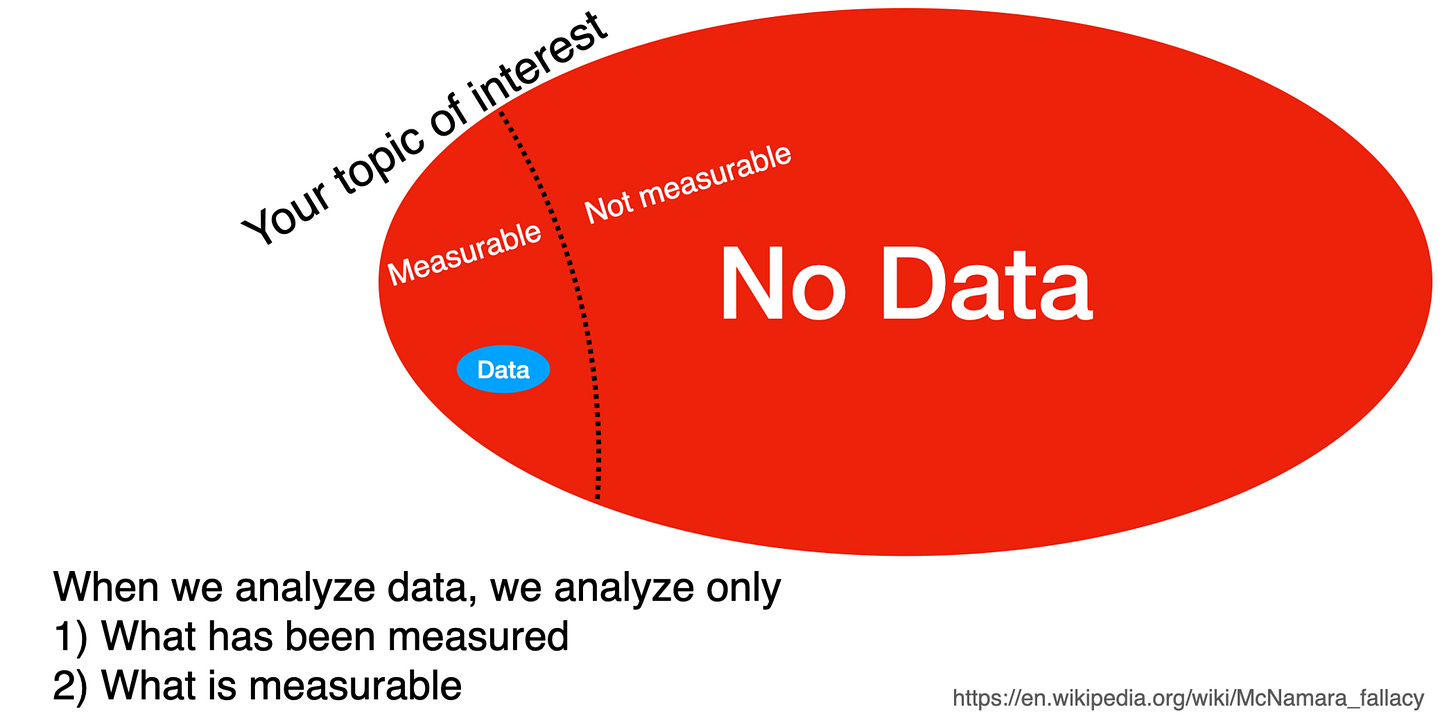Numbers Don’t Tell the Whole Story: The McNamara Fallacy
How Ignoring the Right Metrics Can Lead to the Wrong Decisions
We live in a world where numbers drive decisions. Businesses track profits, schools track test scores as metrics for success, and hospitals track wait times. But what if we are tracking the wrong stuff?
That is where the McNamara Fallacy comes in. It's when people focus on measurable data and overlook what cannot be measured, despite the fact that those hard-to-measure elements are just as important (if not more so).
The Backstory on the McNamara Fallacy
This term got its start with Robert McNamara, who was the U.S. Secretary of Defense in Vietnam. He was an advocate of decision-making based on data and numbers.
In order to measure victory in the war, the U.S. military counted enemy bodies, thinking that the more enemy they killed, the closer they'd be to achieving victory.

The Issue? Body counts didn't factor in:
Public opinion surrounding the war
The enemy's ability to fight another day
Whether or not the war actually was being won
The U.S. military was winning on paper but losing in reality. The focus on a readily measurable statistic (kills) ignored what mattered most.
Real-World Implications
The McNamara Fallacy is not an army story only. it is an ever-present phenomenon in business, medicine, schools, and other sectors.
Business – Measuring the Wrong Signs of Success
Mistake: A company measures success through profits over the dissatisfaction of employees or the retention of customers over a long period.
Result: Employees are exhausted, and customers leave, harming the firm in the long run.
Medicine – Choosing Speed Over Quality
Mistake: A hospital tracks patient wait times instead of the success of treatment.
Result: Patients are rushed through, but their overall health declines.
Education – Overemphasizing Test Scores
Mistake: Schools focus on only standardized test scores and not creativity or critical thinking.
Result: Students score well on tests but are not proficient in actual problem-solving in the real world.
How to Avoid the McNamara Fallacy
✅ Don't Just Look at Easy-to-Measure Data – Some of the most important things (like trust, loyalty, and happiness) can't always be quantified with numbers.

✅ Combine Data with Human Judgment – Use numbers alongside real-world observations, feedback, and expert judgment.
✅ Make Sure Your Metrics Are Aligned with Your Goals – Ask: "Does this data actually measure success, or just what is easy to measure?"
Final Thoughts: Don't Be Deceived by Numbers
Numbers are a powerful tool, but they never tell the whole truth. Next time you come across a report full of statistics, you ask yourself:
"What's missing?"
Because sometimes the most important learning is not in the numbers. it's in what we didn't measure.




This post immediately reminded me of something my manager once said that has stuck with me ever since: "Focus on being data-driven, not metric-obsessed."